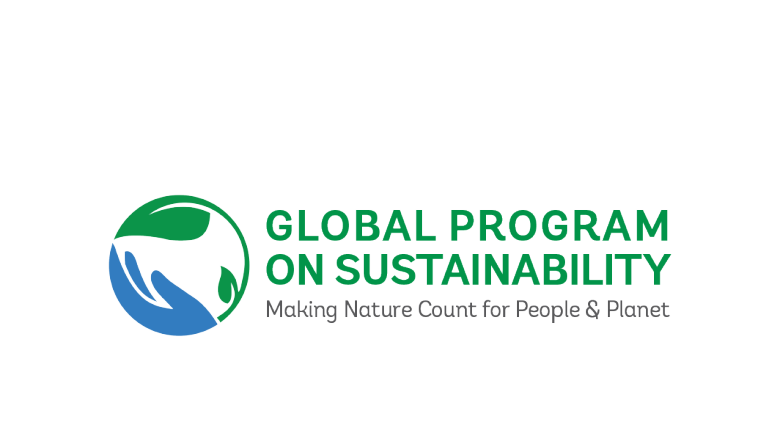
Development of Natural Capital Accounts, Data, Tools, and Analyses
Building on the recently concluded TTA, the Bangladesh CIC program aims to enhance the capacity of the government in environmental management and to pilot new financing mechanisms to promote green investments in targeted sectors. To achieve this objective, the program intends to produce three analytical reports that will inform relevant policies and lending projects.
- Significant progress has been made in this regard, with the completion of the first report on cost-effective interventions, the cost-benefit analysis, and targets in multiple sectors. This report addresses the issue of indoor and outdoor air pollution, focusing on sectors such as brick production, energy, and transport. It has been published externally as part of the Bangladesh Country Environmental Analysis 2023.
- The second report, currently in the inception stage, is a feasibility study that assesses investment opportunities in the Sundarbans. This study also examines the economic case for natural capital-based coastal resilience. The terms of reference for conducting the study were finalize in FY24 and a firm has been selected through acompetitive process. The final study is expected to be delivered in FY25.
- The third report, which focuses on developing a Monitoring, Reporting, and Verification (MRV) framework for greenhouse gas emissions, is being finalized. The task team presented the initial findings of this report to the Ministry of Environment, Forest and Climate Change and the Department of Environment. However, the Bangladeshi government has decided to prioritize the development of a continuous emissions monitoring program instead of an MRV system. The program will track air pollutant emissions from major point sources (stacks), with regular disclosure of preliminary data and immediate enforcement of emissions standards by the Department of Environment. Consequently, the indicative trigger for the third Bangladesh Green and Climate Resilient Development Credit has been adjusted. The findings of the MRV report will support the adoption of a key air quality management policy, particularly as the basis for carbon-pricing instruments—but this policy will not be finalized within the trust fund grant timeline. Nevertheless, the MRV report will be valuable in the future when combined with additional data on emissions sources for assisting the government in designing a carbon-pricing instrument, such as an Emissions Trading System. Furthermore, the MRV framework will support the systematic reporting of natural capital-based greenhouse gas emissions.
Informing Investments and/or Policies
The analysis conducted as part of the 2023 Country Environmental Analysis (CEA) has played a crucial role in shaping the National Air Quality Management Plan. This plan outlines specific interventions to be implemented across targeted sectors by 2030 to improve air quality in Bangladesh. The plan recognizes the impact of transboundary emissions and emphasizes the importance of collaboration with other countries in the Indo-Gangetic Plains and Himalayan Foothills region.
The plan is scheduled for approval in July 2024 and is expected to influence the design of two World Bank lending projects:
- The second Green and Climate Resilient Development Credit and the Bangladesh Clean Air Project. The activities on the MRV system on short-lived climate pollutants will be financed by the Clean Air Project. However, the TTA support (initiated before the CIC grant) informed the Bangladesh Sustainable Coastal and Marine Fisheries Project. The fisheries data gap analysis financed by GPS was used to inform the implementation of this project.
- The activities supported by GPS also contributed to the National Strategy for the Development of Statistics 2024-2030. Through tailored advisory services, the GPS team helped incorporate and strengthen a dedicated section on environmental statistics, including recommendations for NCA, in the updated strategy. Environmental statistics was also identified as one of the strategic priorities in the revised strategy. The advisory services provided through international experts and a high-level visit to Washington, DC, were instrumental in shaping the initial engagements on the Bangladesh Statistics Modernization project. Specifically these inputs contributed to the creation of a dedicated sub-component focused on environmental statistics and NCA and will be fully reported in future when the project is approved. Such advisory services from GPS will continue to support this project in FY25.
Efforts are under way to use the MRV report and the feasibility study on the economic case for nature-based coastal resilience to inform the Bangladesh Green and Climate Resilient Development Credit-3, Bangladesh Clean Air Project, and the Bangladesh Coastal Resilience Project.
Capacity Building and Institutionalization
A five-day knowledge exchange was conducted between June 24 and June 28, 2024, where a high-level delegation from the Bangladesh Bureau of Statistics and the Statistics and Informatics Division of the Ministry of Planning visited Washington, DC, to exchange experiences, knowledge, and lessons with the World Bank and the United States government on efforts to modernize statistics, particularly on the environment, gender, and poverty.
Communication
On June 25, 2024, a GPS seminar was organized with more than 60 participants on the role of data and statistics in addressing Bangladesh’s environmental challenges. The seminar drew from the results of the Technical Assistance in Bangladesh to highlight the critical role that data and statistics play in fostering sustainable development in Bangladesh. Officials from the Bangladesh Bureau of Statistics and the Statistics and Informatics Division were instrumental in organizing the seminar.




